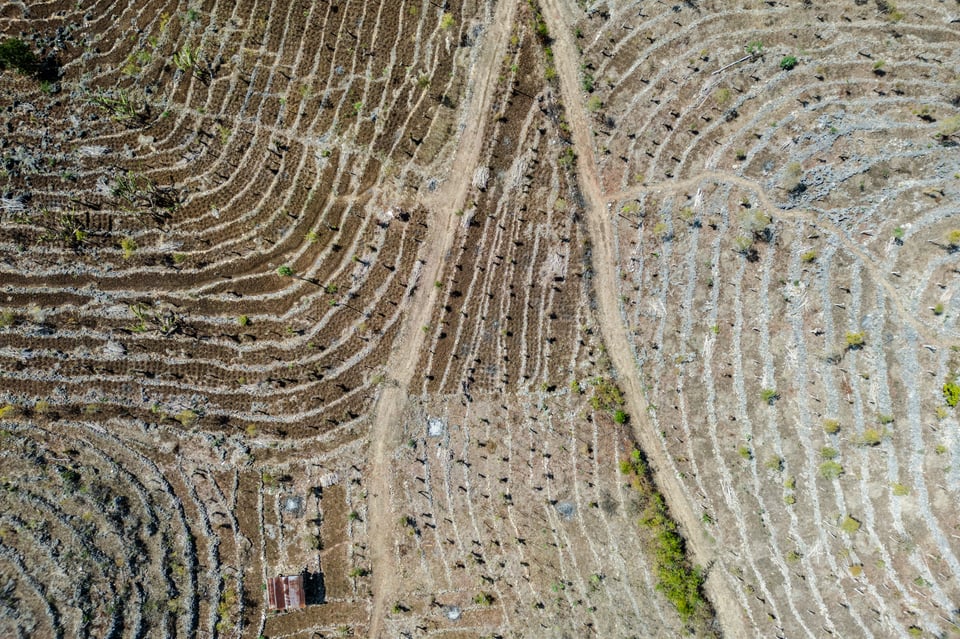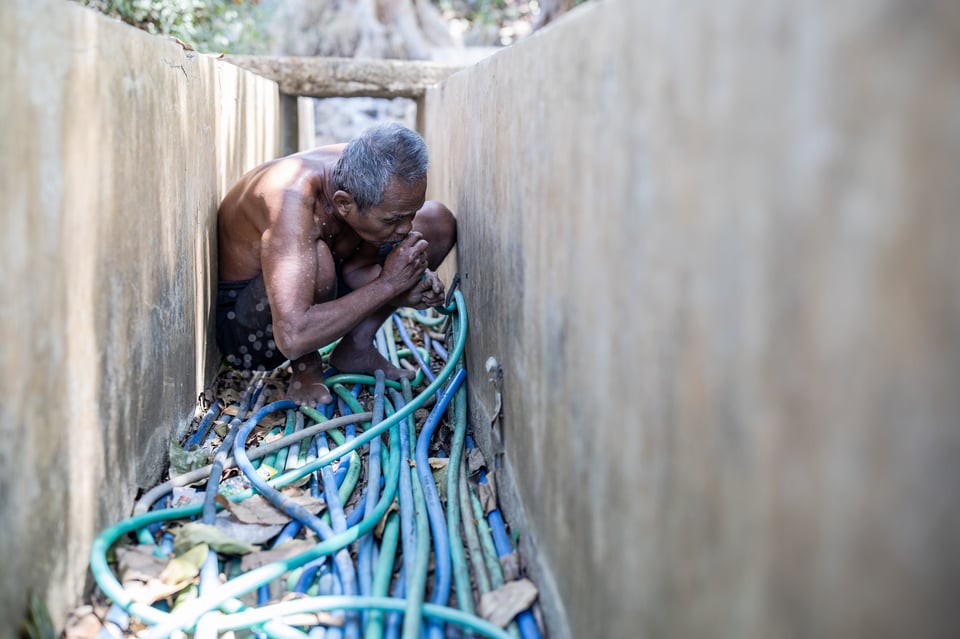Rain or shine, The Xylom is here
The Xylom will wrap up the year by publishing exclusive climate and environmental justice visual stories from the Global South
Dear reader,
When you hear the phrase “climate change,” what comes to mind for you?
Perhaps you think of wildfires, perhaps of hurricanes. Maybe thinking about how it still feels like breathing in hot pea soup even when we’re deep in November.
As someone who lives in California, water is perhaps one of the biggest issues that I can think of. For several decades, California has been dealing with a drought that only seems to get worse. The water politics in Los Angeles have been immortalized, most famously, through now-disgraced director Roman Polanski’s 1974 film Chinatown.
As rainfall patterns change, these issues will only get worse, in California and beyond. But unfortunately, the world beyond has already been experiencing what for me and other Californians is probably one of our worst-case scenarios.

Lower-income countries and marginalized communities disproportionately experience the effects of climate change and environmental injustices. Throughout the rest of the year, The Xylom will share climate and environmental justice stories from three such regions: Indonesia, East Africa, and India.
Through our first set of stories exploring the various forms of water crisis in Indonesia, photojournalist Garry Lotulung reports how Indonesia is dealing with the two extremes of drought and floods at the same time.

You can read the series “Parched and Drenched” here.
Sincerely,
Rhysea Agrawal
Managing Editor
Like this newsletter? Share it with a friend and subscribe below!
THINGS YOU SHOULD READ
Following an exhausting election season, let’s take a breather from the news. Our “A Southern Flair” and “What Else We’re Reading” sections will return in the next newsletter. In the spirit of community, let’s celebrate some newsroom highlights:
NEWS BEHIND THE NEWS

All donations to The Xylom are triple-matched up to $1,000 until the end of the year.
You should also consider supporting our friends at The Objective; they helped Alex develop and publish an op-ed!
Join us in welcoming Aorui Pi as our new engagement editor and public health writer! She will oversee The Xylom’s departure from X, develop strategies to reach new audiences, and report on the practice of Traditional Chinese Medicine.
After Alex’s original investigation about MARTA’s failures to deliver weekend service, the Atlanta transit agency has responded by interlining trains for at least 5.5 hours in each of the past two Saturdays to accommodate major events. However, we still haven’t seen two consecutive weekends with normal service the whole year!
FAMILY NEWS!
Ellie Rose Mattoon has a great story for JSTOR Daily about the dwindling number of midwife-attended deliveries in the U.S. compared to the U.K.
Crystal Chow’s reporting on Angelman’s disease for us, supported by a National Press Foundation Covering Rare Diseases Fellowship, has been included in Volume 3 of the Living with a Rare Disease Worldwide anthology by Fondation Ipsen!
Angely Mercado’s essay for us (see below) was highlighted in the Study Hall community’s 2024 Election coverage!
THE XYLOM’S RECENT STORIES
When Indonesia's Most Populous Island Becomes Parched
Climate change has changed rainfall patterns in Indonesia, which is increasing the incidence of droughts in Central Java. Part one of our “Parched and Drenched” series by Garry Lotulung.
Atlanta Takes No Pride in MARTA’s Weekend “Special Schedules”
Tracking-related service cuts have affected Atlanta almost 80% of the weekends since Oct. 2023, taking nearly 5,500 trains out of service. For this investigation, Alex Ip also built the first MARTA weekend service dashboard!
Finding Clean Water Near Mount Everest Might be Harder than Summiting it
As tourism and regional pollution contaminate Nepal’s Khumbu Valley, researchers are zapping the ground to find new potable water sources, writes Manish Koirala.
Black Fever, Brought to You by Climate Change
Aliya Bashir reported about the rise of infectious vector diseases in India due to climate change, especially the dangerous Kala Azar disease caused by the parasite Leishmania.
Add a comment: